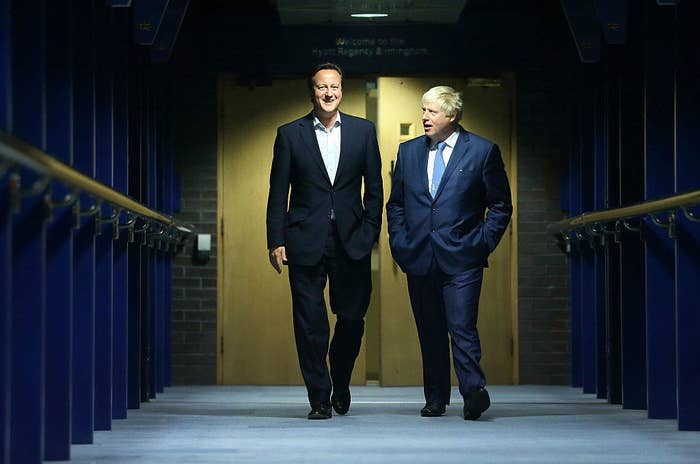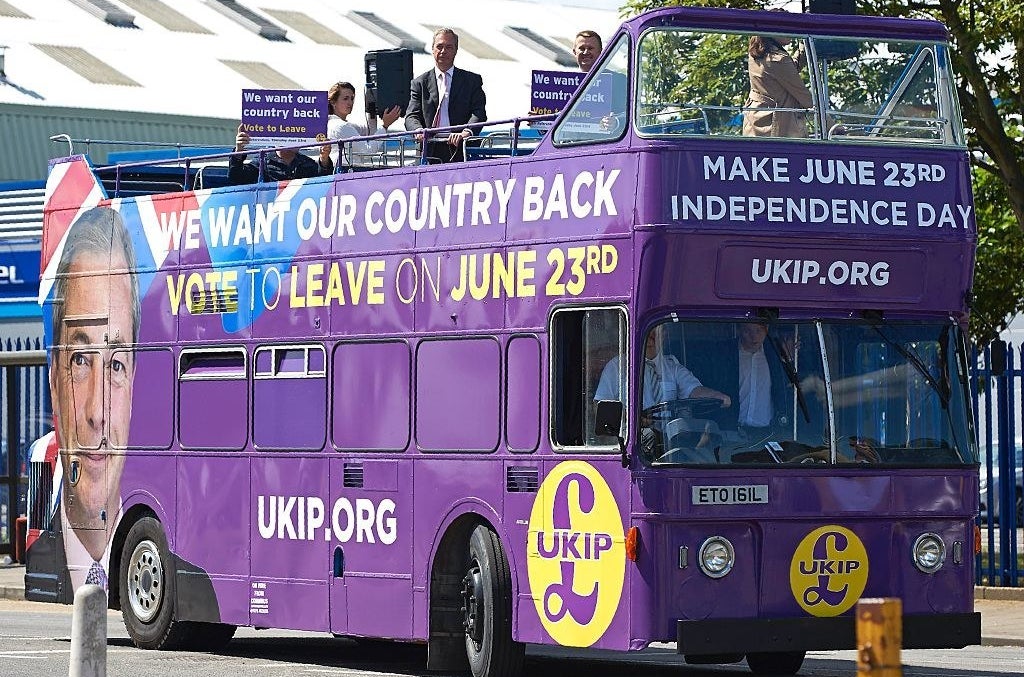
On Thursday the British public will decide whether they want the UK to remain or leave the European Union. For weeks the polls have painted a confusing picture – the first online surveys suggested a close contest, with telephone polls consistently giving Remain a comfortable lead. At the beginning of June, the polls turned and both telephone and online trends moved towards Leave. Finally, as the campaign entered its final stretch, the polls, as some had predicted, edged back towards the status quo.
An average of polls puts Remain and Leave neck and neck.
Are we any the wiser? We asked Britain’s top pollsters who they think will win the referendum and by how much, and to predict voter turnout.
Who do you think will win, Remain or Leave? And by how much?
Ben Page (Ipsos MORI):
"Today, Tuesday, I don’t know. The polls are currently neck and neck and it's all in the margin of error. There has been a movement back to Remain in the last few days but it's not yet confirmed as a decisive shift. In terms of probability, however, I would go 60% likelihood of Remain winning and 40% chance of Brexit – based on the Scottish and Quebec precedents and the well-known status quo bias in many referendums.
"I would say about 53% Stay, 47% Leave (but with the proviso that it is perfectly possible for it to be the other way around – some 5-10% may decide on Thursday in the privacy of the polling booth, where no pollster can go)."
Joe Twyman (YouGov):
"I would predict that a Remain victory is the most likely outcome, but it is far from guaranteed and victory for Leave is certainly still a possibility. In the Scottish referendum our polls (subsequently backed up by those from other agencies) showed a move towards Yes, the ‘change’ option, followed by a move back to No and the status quo. The story of this campaign seems to be following that pattern, but there are two crucial differences with the EU referendum that mean the picture remains far from certain. Firstly, the Scottish referendum had the issue of the currency to introduce an extra element of economic uncertainty that is not present now. Secondly, older voters in the EU ref strongly favour Leave, whereas in Scotland they favoured the status quo. This is important because the older voters are, traditionally at least, far more likely to vote.
"A lot will depend on turnout. Nearly 4 million people voted UKIP at the last election and it is likely the overwhelming proportion of them will walk across broken glass in bare feet to vote to leave in this referendum. The Remain camp does not have a similar group they can rely on to vote to the same degree. My prediction of a Remain win is based on the assumption that a large enough proportion of groups favouring Remain, such as younger voters and Labour supporters, actually make the effort to get to the polling station.
"And whether or not that assumption holds true will depend on the last few days – perhaps even hours – of the campaign."
Andrew Hawkins (ComRes):
"One week before the referendum it looked like Leave were going to nail it but their momentum has been stopped in its tracks. The numbers now favour Remain but I could also see Leave scooping victory if enough voters decide they have simply had enough of the establishment telling them what’s good for them.
"It would be foolhardy to guess [by how much]. History suggests a large margin for Remain but history could be wrong."
Adam Drummond (Opinium):
"Remain. We have it as a tie at the moment and it feels like the standard swing back to the status quo is happening. However, I'm a little hesitant about this as that swing back is usually fuelled by older voters who typically prefer the devil they know. This time all polls seem to have older voters backing the 'change' option (though 75+ perhaps less so) so we might be in for a surprise.
"[Remain will take] between 50 and 53% of the vote. I could be wrong and it could be a bigger Remain win or a narrow Leave win, but a tie now plus the status quo reversion lands Remain at about that range."
Luke Taylor (TNS UK):
"We think that the result will be close. While our polling shows Leave with an advantage, we expect to see a similar pattern to the 1995 Quebec referendum and the 2014 Scottish independence referendum with a considerable late swing towards the status quo. Whether this swing will be sufficient for Remain to win is not possible to predict at this stage. The outcome of the referendum will depend on turnout – specifically on the ‘young vote’ and whether it materialises in sufficient quantity to put Remain over the top.
"We expect the margin of victory to be less than 5 percentage points for whichever side wins."


What is your prediction for voter turnout?
Drummond (Opinium):
"I'm going to guess about the same as a general election, so in the region of 60-65%. There are contradictory arguments here: The 1975 Europe referendum had turnout 10 points below GE averages, while Scotland obviously had a tremendously high turnout of around 80%. Splitting the difference gives us about a general-election level of turnout. Though if there's one thing we know pollsters struggle with, it's predicting turnout."
Taylor (TNS UK):
"Our polls suggest that the turnout will be broadly similar to a general election – we anticipate that somewhere in the region of 65-75% of the electorate will vote.
Hawkins (ComRes):
"There is plenty of evidence to suggest it will be higher than general election levels."
Page (Ipsos MORI):
"Currently similar to the general election."
Finally, Jon Cohen of SurveyMonkey said:
“It’s unfamiliar – and somewhat uncomfortable – territory to not have a good sense of what’s going to happen two days away. But that’s where we are. We’ve been polling for two weeks and there have been only small movements around a 50-50 contest. It may be trite to cite turnout as the determinant, but that’s the reality here. Anyone’s models of what might happen is highly dependent on who is actually motivated to vote on June 23. Age and education are reliably two of the best predictors of turnout, and with the Brexit they run strongly in opposite directions. Older voters side with Leave by a large margin; but better-educated ones favour Remain by a lot.”
Polling firms Populus and ICM were also invited to answer the three questions. They declined because they are working with the campaign groups. Survation hadn't responded to the requests at the time of publication.
